The Compulsive Indulgence of Open-World Games
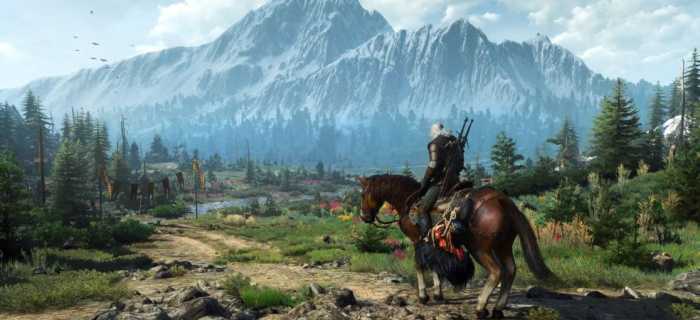
The allure of an open-world game lies in the concept of promise and reward. Players are drawn to areas of a vast explorable world by landmarks they see in the distance or by an odd formation they have marked on their map, hoping to find a secret treasure, exciting battle, or hidden quest that — though they are seldom the only player to discover these joys — they feel belongs only to them on their personal adventure.
Effective open-world games — like 2015’s The Witcher 3: Wild Hunt and 2018’s Red Dead Redemption II — have a memorable story that goes hand-in-hand with the player’s exploration. While many open-world games do not have a scripted story — such as the infinite sandbox adventure Minecraft (2011) and the enormous space exploration simulator No Man’s Sky (2016) — these are distinctly different to RPGs (role-playing games), where the player takes on the story and character of someone like The Witcher’s Geralt of Rivia, and Red Dead’s Arthur Morgan. In Minecraft and No Man’s Sky, the purpose of the gameplay is entirely up to the player. But in games with a scripted story, the player must almost always return to the main quest after diverging from the beaten trail.
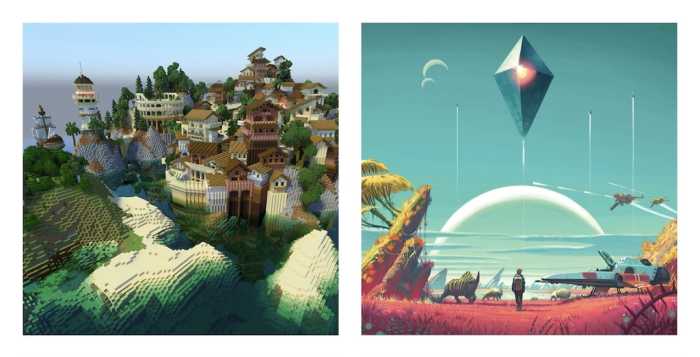
The Lasting Legacy of Skyrim
The Elder Scrolls V: Skyrim has been a massively transformative force in the open-world gaming landscape. Its release in 2011 sparked a significant shift in the scale, immersion, and player freedom present in open-world games. Its diverse environment brimming with rich lore and detailed side-quests established a new standard for world-building. Its impact can be felt in the rise of large-scale, open-world RPGs such as The Witcher 3, Horizon Zero Dawn, and The Legend of Zelda: Breath of the Wild. Skyrim’s adoption of a non-linear narrative structure inspired games to provide players with more agency, allowing them to shape their own stories and make meaningful choices. The thriving gaming community around Skyrim has demonstrated the longevity and adaptability of open-world games, leading to the continued support and enhancement of open-world titles well beyond their initial releases in the form of official additional downloadable content and community-generated ‘mods’.
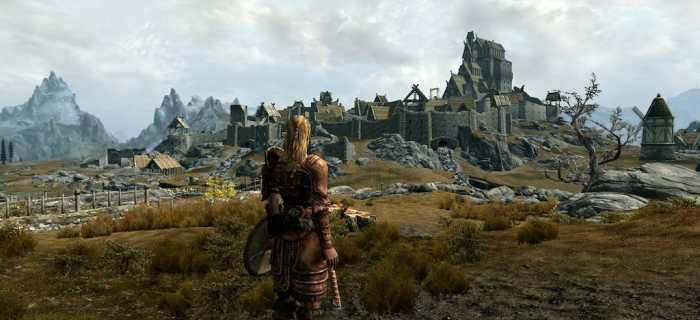
‘The Witcher’ and ‘Horizon’: The Distractions of Geralt and Aloy
Skyrim’s influence has also extended the average gameplay length for triple-A game titles. A player can complete the main story of The Witcher 3: Wild Hunt within 50 hours but spend over an additional 100 hours exploring the world, completing side quests, going on treasure hunts, and fulfilling contracts. The rich allure of Andrzej Sapkowski’s dark fantasy world realised in game form has side-tracked many players for hours or even days and weeks at a time, leaving the urgency of the main story far behind. Returning to the main quest after such an extensive hiatus can lead the player to question Geralt’s determination to find his adopted daughter, Ciri, as he has spent the last twenty in-world days hunting for the perfect armour, the shiniest sword, the juiciest monster organs, and the most elusive missing frying pans (all while struggling with a crippling gambling addiction, as he engages every possible NPC in a round of Gwent in his attempt to collect every in-world Pokemon card, the most powerful of which, is, of course, himself). Similarly, in 2022’s Horizon Forbidden West, one wonders if Aloy hasn’t forgotten that the second apocalypse seems just around the corner, as she hunts relentlessly for crabs, squirrels, and birds, all to craft a bigger satchel, so she can hold more arrows, which take all of one second to craft in the heat of battle.
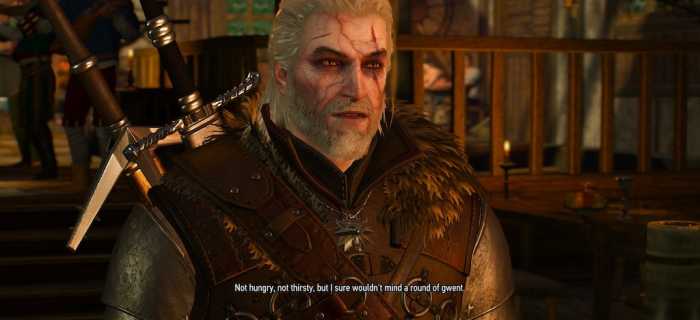
But gamers have been suspending their disbelief like this for over a decade, and many open-world enthusiasts are okay with that. It would be impractical and contentious to generate a game mechanic that punishes players for exploring game environments. At the core of the open-world game experience is the player’s choice of how to devote their time. They may choose to pursue the main story and leave the exploration for later or sprinkle the exploration evenly. For the most part, exploration is rewarded, whether with upgrade materials, entertaining side quests, or hidden lore. However, completing upgrade quests, treasure hunts, and knocking out ‘unknown’ marks on a map can sometimes feel much more like ticking items off a checklist than freely exploring a game world. This is known as ‘checklist syndrome’, which has become increasingly common in Ubisoft’s Assassin’s Creed series.
The ‘Assassin’s Creed Problem’
Ubisoft’s game design has been criticised by fans and critics alike for being repetitive and shallow. Although their open worlds are often stunning and large, they’re full of unrewarding content, loot, and side content and have been said to prioritise quantity over quality. Intriguing treasure hunts and raids populate the maps, but a player will often travel long distances and fight many enemies only to be rewarded with loot chests that contain useless, generic gear that provides no significant benefits or noteworthy lore. These symptoms of checklist syndrome can not only lead to a player becoming dispirited and quitting a game, but it may mean that they miss out on later content and storylines they were looking forward to.
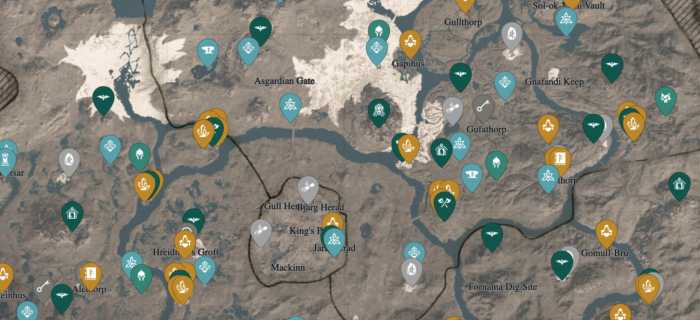
So, how do developers avoid checklist syndrome? Why are the worlds of Skyrim, The Witcher and Red Dead Redemption lauded, while those of Assassin’s Creed: Valhalla and Odyssey are criticised? It all comes back to promise and reward. Without enough rewards, gamers become dispirited; they start to feel as if their efforts are not worthwhile. And if all they receive is repetitive and meaningless loot with arbitrary numbers, stats, and designs, there is no reward beyond the grim satisfaction of completionism.
Traditional and Modern Linear Game Design
On the other side of the fence to open-world games, we have linear, story-focused games. Linearity in video games, once a staple in the industry, gradually lost favour as open-world games rose to prominence. Linear games have inherent limitations; they constrain players to predetermined events, offering little room for exploration and making players acutely aware of the boundaries imposed upon them. On the other hand, open-world games empower players to carve their own unique paths, increasing their investment in the game. As gaming technology advanced, developers seized opportunities to create expansive, highly detailed worlds, offering players endless possibilities for exploration. This freedom of choice, often touted in marketing campaigns, appealed to gamers who craved personalised playstyles. Open-world games also allow developers to monetise additional in-game items, expansions, and downloadable content (DLC) to extend the game’s lifespan and profitability.
Naughty Dog’s Linear Game Design
Game developer Naughty Dog found massive success in linear franchises Uncharted and The Last of Us, beginning in 2007 and 2013, respectively. These games hold plenty of world-building and history implicated by dialogue, set-pieces, art design, collectibles, and the cutscenes, which transition seamlessly between gameplay and often feel like a well-directed movie. While players can go off the trail and explore playable areas, and there are several open levels like Downtown Seattle in The Last of Us Part II and the Madagascar mountains in Uncharted 4: A Thief’s End (notably more recent entries; older games lacked significant explorable areas),players cannot ‘deselect’ a main quest, and cannot go beyond the limits of those areas or return to previously explored regions. The story’s priority streamlines the narrative and ensures the player is never disengaged. This makes the game’s length shorter but increases the replay value of the story.
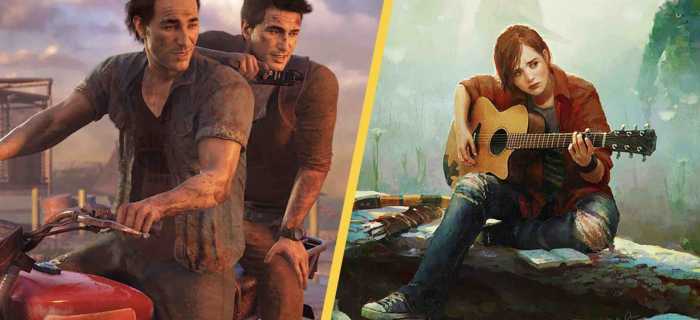
Meanwhile, it will take a player much longer to replay Red Dead Redemption II, but a single playthrough can last as long as several playthroughs of any of the Uncharted games. With less content but consistently high-quality storytelling, there’s no pressure on the player to explore and collect items. They can feel their every action contribute to the story rather than filling out a shopping list of armour and weapons.
The Punishing Difficulty of the Dark Souls Games
On yet another side of a many-sided fence, we have the From Software formula, seen in the infamous Dark Souls series. These challenging RPGs feature interconnected worlds, profound lore, punishing difficulty, and tactical combat. Players traverse grim, atmospheric environments, engaging in tense battles against formidable enemies and bosses. The games emphasise exploration, character customisation, and choice of playstyle. The Dark Souls series is not strictly open-world but offers interconnected, semi-open-world environments. Players can explore connected regions through a seamless, intricate level design. While there’s a general progression path, players can often choose how they tackle areas and enemies, fostering a sense of freedom and exploration.
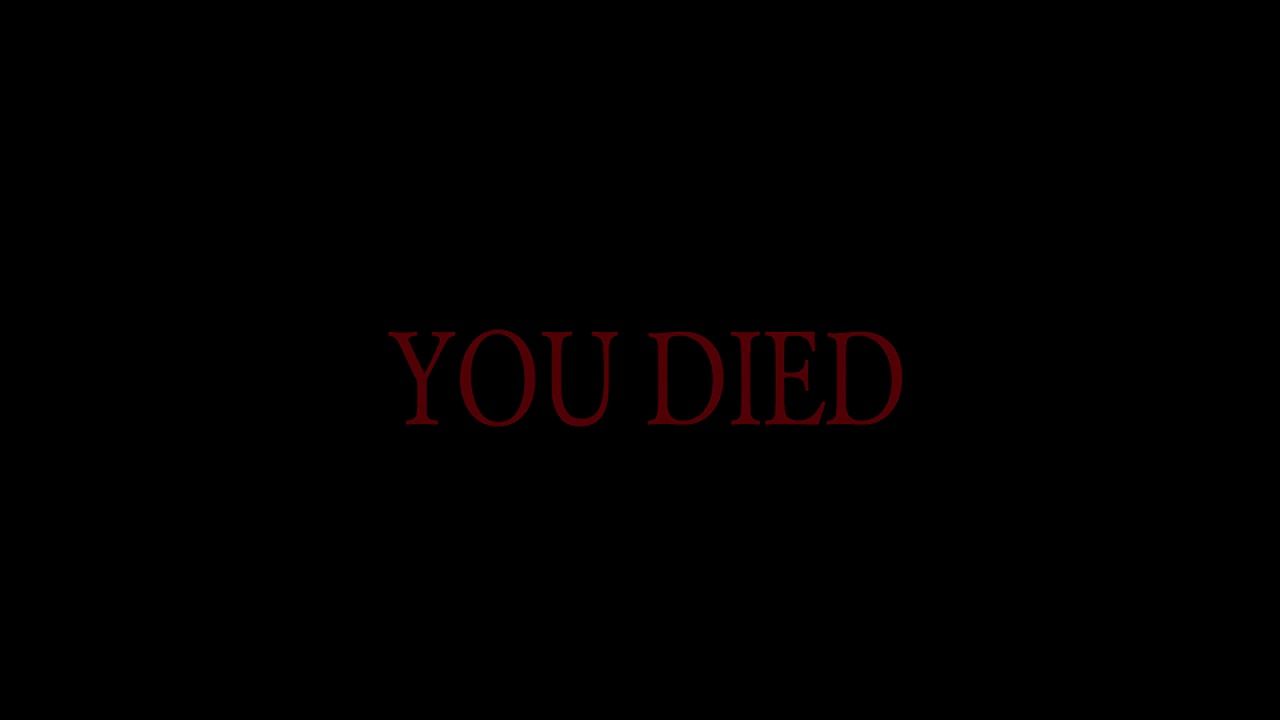
Elden Ring: More or Less an Open-World Dark Souls
As announced at The Game Awards, 2022’s Game of the Year is From Software’s massive venture Elden Ring (directed by Hidetaka Miyazaki, developed by From Software and published by Bandai Namco Entertainment), the latest action-adventure role-playing game to follow and expand upon the formula they created and developed through the popular Demon’s Souls, Dark Souls, Bloodborne and Sekiro titles. Elden Ring generated more discussion and excitement than any title that From Software or Hidetaka Miyazaki has produced. This hype was directive to the game’s massive sales, influence, and the eventual storm of accolades. Integral to the anticipation of the game was the involvement of A Song of Ice and Fire author George R. R. Martin, who provided world-building and lore. This was especially important to the release because Elden Ring, unlike any From Software game, was marketed fully as an open-world game and was described as the biggest and best title the company had released. On developing their first open-world game, Miyazaki said:
It was a challenging process because it was, of course, our first experience creating a world of this size, on this scale. So we don’t know if our approach was the right one, but we generally approached it with the same strategy we’ve used with all of our games up until now, in the physical sense of how we lay it out, and how we break it down as a game world.
Hidetaka Miyazaki, interview By Jason Killingsworth at GamesRadar.
The promise of venturing out into a great, high-fantasy world with nothing limiting your exploration and the excitement of stumbling across difficult, frightening new enemies proved to be Elden Ring’s selling point, because sell it did; within two weeks of release, the game had sold 12 million copies, making it one of the best-selling games of all time on the US charts. While there is still the decades-long argument of whether heavily combat-based games like these should have an ‘easy mode’, Elden Ring was mainly praised for its quality of life improvements that reduce gamers’ frustration during difficult portions.
Like previous From Software games, Elden Ring’s story and lore are not laid out clearly in cutscenes and quests, but rather, it is in the world, the items, and the boss encounters. Some might say it steps back from the evolution present in 2019’s Sekiro: Shadows Die Twice, which had the most accessible storyline of any Soulsborne game. Like Sekiro and Bloodborne, however, it has multiple endings, each of which can be accessed in obscure ways, by the player having completed a missable NPC quest, engaging in repeated dialogue options, or having obtained an item from an optional boss. In this way, the game rewards the work of the wandering (or wiki-searching) player but alienates those who want the story laid out for them and want the combat to be the ‘in-between’ of narrative beats.
Like recent Assassin’s Creed titles, there is an argument to be made of ‘more is less’ with Elden Ring. There is no denying the game has introduced many new players to the sub-genre of action RPGs commonly dubbed as ‘Souls-like’ (in reference to the original Demon’s Souls and Dark Souls titles) and is the most accessible of the From Software games, mainly due to its open-world design that allows players to back out from brutal fights, explore the world, level up, and return to boss battles stronger, more skilled, and with more powerful weapons and spells at their disposal. But with well over 200 total boss battles in the game, the excitement and adrenaline of entering a new fight can be lost. The introduction of the ‘Field Boss’ (boss battles found through exploring the world; there are often duplicates of these that the player can defeat multiple times) is exciting, but the sheer number of them and repeat encounters take away some of the surprises that players of ‘Souls-like’ games have come to expect.
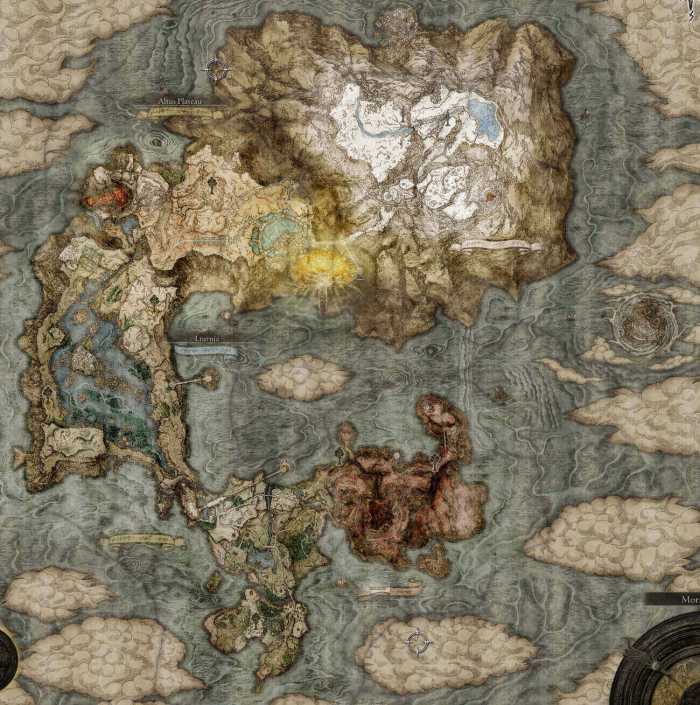
The Horror of Bloodborne’s More Intimate World Design
In From Software’s Lovecraftian horror game Bloodborne (2015), there is a moment where strong enemies called’ snatchers’ start appearing once the player progresses past a particular boss. At first, they seem like regular enemies. But if the player dies to them, they are transported to a dark, haunting location. One of the paths out of this prison — easily stumbled upon by running in a blind panic from more of those terrifying ‘snatchers’ — leads to what looks like an escape route. However, as the player drops down from the ledge, unsure, their eye is caught by the suspicious mound in the middle of the clearing. A pile of bones? They look away, scanning for an exit. Suddenly, the mound starts sparking, standing, roaring, and they hear an ominous, intense score kick in — it is a terrifying boss that they are vastly underprepared for. And they are plunged into the fight, fingers slick with sweat, eyes wide and fixed on this powerful enemy, entirely out of their comfort zone but loving it. They will do their best to defeat this boss and escape with their hard-earned spoils, lest they die and their ‘blood echoes’ be lost. Because moments like these are so rare and well-paced in Bloodborne (and there is less content overall), they stand out and have a greater impact. Not to mention, the twisting architecture of the gothic city of Yharnam and its surrounding areas rewards the player’s exploration of the interconnecting regions with valuable items, horrifying sights, and challenging encounters.
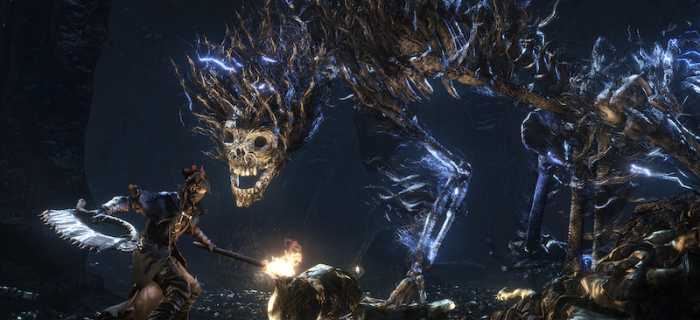
The Problem with Elden Ring
Elden Ring, however, is a gargantuan accomplishment that is a little too enormous for its own good. Its faults, while few, mainly lie in the smaller things: items. Discoverable items are indicated by a glowing white or blue light, often observable from a great distance. As the player enters Leyndell, the Royal Capital, and looks out over the vast golden city where an enormous dead dragon rests, they can see many of these lights and make plans to reach them. Through well-planned movements (and many deaths), they reach the item and interact with it, only to discover it is a regular, common item they could have picked up anywhere, that they have numerous copies of, that it was not worth their time. What was promised by what seemed to be a difficult or hidden path, where surely, there must be something worth their while, was not rewarded appropriately. And it is this outcome that leads the player to become dispirited with exploring. Sadly, this means they may miss out on future delights because they decided that exploring such a vast world was not worth it.
Even the ‘legacy dungeons’ (contained sections of the world such as Volcano Manor, Stormveil Castle and The Royal Academy of Raya Lucaria) can be wildly confusing and offer too many alternate paths that don’t reward the player with enough Elden Bling. Because the game is so long, with so many areas, we can hardly expect to find a legendary armament around every corner. As Miyazaki said, the game was developed in the same style as previous games, but it is much bigger, so the rewards are more spread out. At least, we can always rely on the major boss battles (with the Elden Lords) to deliver sufficient adrenaline-fuelled spectacle.
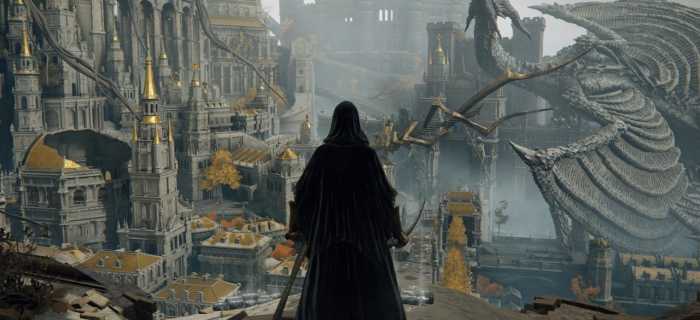
These faults have not deterred Elden Ring’s monumental success; at the end of 2022 (a big year for gaming), it won ‘Game of the Year’ at the Golden Joystick Awards, received seven key nominations at The Game Awards and won 4 (including Game of the Year, Best Art Direction, Best Role Playing and Best Game Direction). At the end of the day, Elden Ring has achieved what previously seemed very unlikely: it translated the linear and often-times frustrating Dark Souls formula into an open-world exploration RPG with familiar but more accommodating combat, opening up this once-niche area of video games to a broader world of consumers, and near-universal critical acclaim. If only the next From Software game could perfect the translation and offer more suitable rewards for players’ exploration, then they will have created a true gaming masterpiece.
The Accolades of Open-world Games
Since the release of The Elder Scrolls V: Skyrim in 2011, open-world games have dominated the world of mainstream gaming. The 2022 nominees for ‘Game of the Year’ included the open-world action RPGs Horizon: Forbidden West, Xenoblade Chronicles 3 and Elden Ring, as well as the mostly linear but semi-open God of War: Ragnarok, the historical stealth horror title A Plague Tale: Requiem and the adorable cat game Stray, making half (more than half, if we include God of War: Ragnarok) of the main ‘Game of the Year’ contenders open-world games in some form, and the final winner being a highly unique open-world game: Elden Ring.
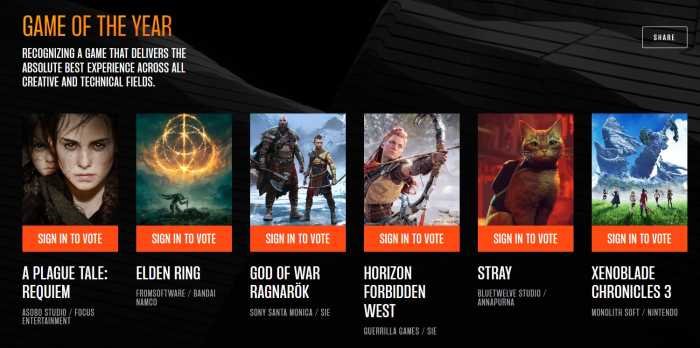
Many of the most acclaimed triple-A games in the past decade have been open-world titles, such as the previously mentioned Red Dead Redemption II and The Witcher 3: Wild Hunt, as well as Marvel’s Spider-man, Grand Theft Auto V, The Legend of Zelda: Breath of the Wild, Ghost of Tsushima, Horizon Zero Dawn, The Elder Scrolls V: Skyrim, and many more. But just as many open-world games fail to garner acclaim and accolades. Sometimes they miss the mark by not offering anything new in a market now oversaturated by the typical open-world formula. Sometimes they attempt too much, are too overwhelming, or deliver too little. Too often, diving into a vast open-world game is like gorging yourself at an all-you-can-eat buffet: there are too many options, too much filler, and the result is a lot of enjoyment mixed in with a heap of regret.
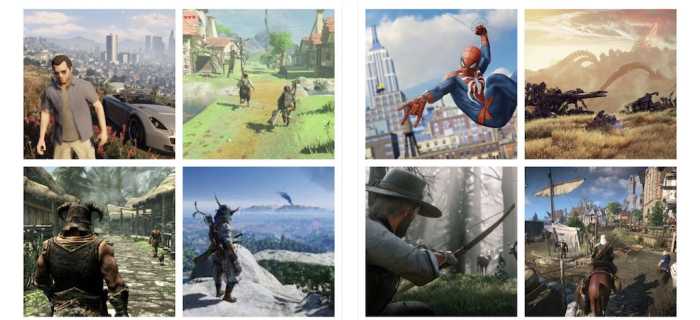
So, What Should a Great Open-world Game Include?
Open-world games should have character, care, detail, but most of all, the pièce de résistance: reward.
At the end of the Witcher 3 side quest ‘There Can Only Be One’ from the Blood and Wine expansion, the player receives a powerful sword that levels up with their character. Even better than the reward is how the player earned it: by exhibiting the five virtues, not in this quest, but at critical moments in the main story. If the player makes the right choices, helps the right people, and says the right things, they become worthy of the best sword in the game. It’s rare that a side quest will depend so heavily on main quests and the choices the player makes during them. The player is rewarded for exploring the sunny fields of Toussaint and, moreover, for making morally complex choices accurate to Geralt — the character they play. Side quests like this are quintessential to the Witcher 3’s world, story, and lore, as they deepen the player’s investment and reward them for their time, choices, and playstyle.
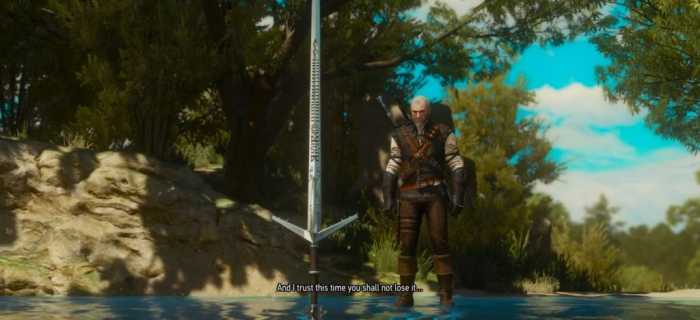
In the side quest, ‘The Noblest of Men, and a Woman,’ from Red Dead Redemption II, the player tracks down and duels four legendary gunslingers, each with their own unique backstory and personality. This quest promotes the game’s combat mechanics and duelling system and rewards the player with a unique revolver from each gunslinger. This quest delves into the era’s history, emphasises the fading outlaw lifestyle that is the game’s theme, and encourages exploration across the map littered with events and wonders to discover.
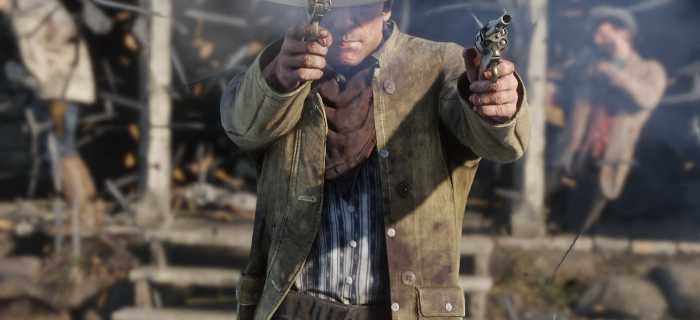
The fan-favourite ‘Dark Brotherhood’ questline in Skyrim involves joining a secret society of assassins and completing a quest chain that tests the player’s skills in stealth and combat. The story features memorable characters and unexpected twists. The rewards for completing the questline are a set of unique armour that makes the player nearly invincible in stealth and a powerful weapon that steals health from enemies.
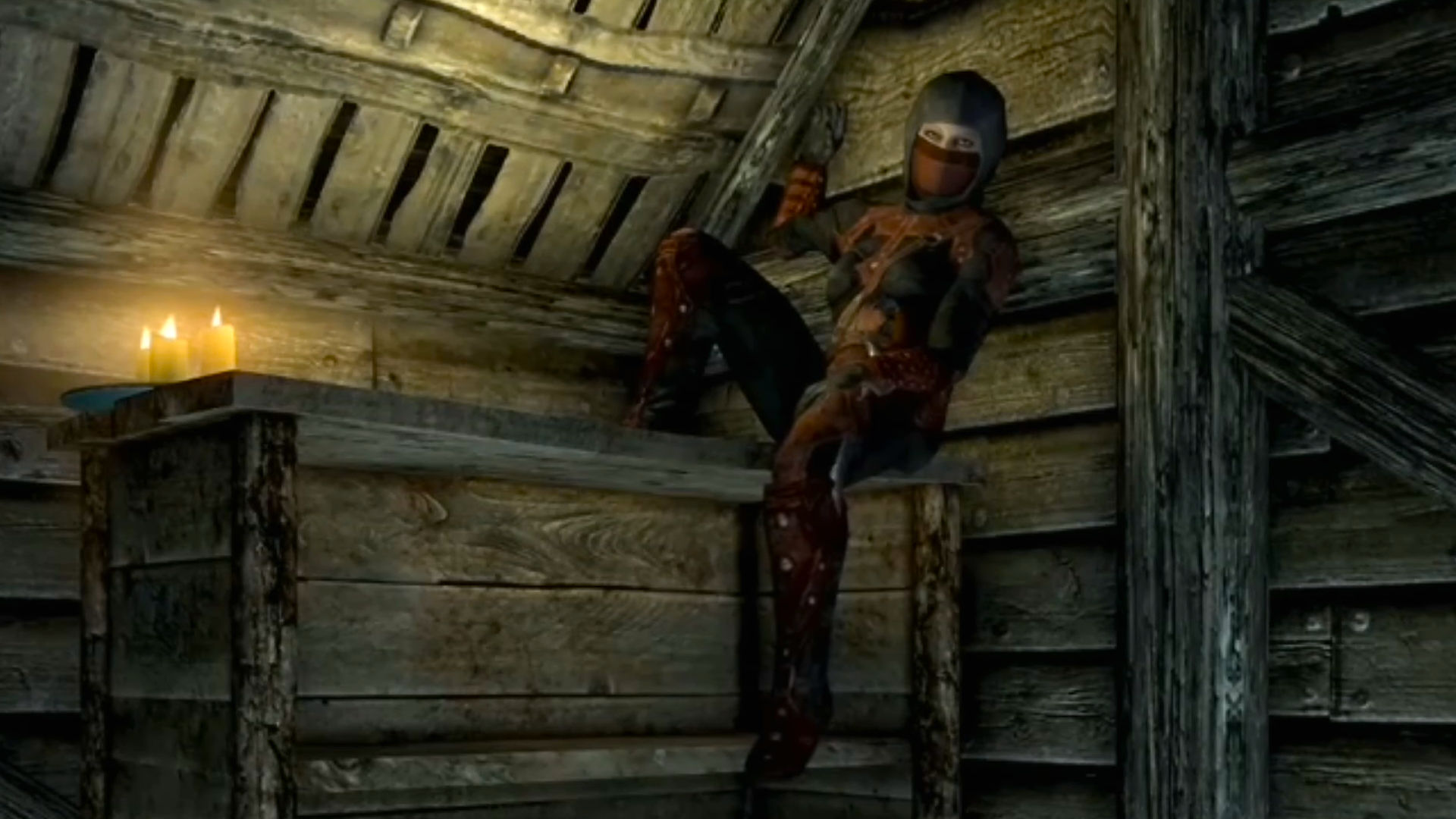
These quests are perfect examples of how to do an open-world game right. These games’ promise and reward systems engage players and keep them invested in the world. Their curiosity and desire to see what’s around the next corner, down that rabbit hole, or on top of that mountain are rewarded with meaningful, unique content and satisfying rewards; an item that impacts the gameplay and story; powerful weapons or abilities; memorable cutscenes; rich lore and world-building. These rewards give players a sense of progression and agency as they delve deeper into the game, making them glad they took the time to explore.
Unfortunately, the ‘checklist syndrome’ that plagues other open-world games can lead to players compulsively indulging in subpar side content simply for the sake of completion. A lack of meaningful rewards can make players feel unfulfilled and frustrated, causing them to abandon the game and miss out on the rest of their experience. Developers balance engaging side content and satisfying rewards to keep players motivated to come back for more. Players can enter a virtuous cycle of exploration, promise, discovery, and reward when they get quality over quantity. By designing side quests and activities inseparable from the game’s world and narrative, developers can nurture a cohesive and captivating experience that enriches the player’s journey and the game’s lore.
When It’s All Worthwhile
There is no discounting how difficult it is to make exploration in a video game engaging throughout hours upon hours of playtime. Regardless of how many awards a game receives or copies it sells, its success is determined by how well it rewards its players. The special moments and rewards that a player earns, not the main story beats, make up the true pièce de résistance of an open-world game. Gaining a massive high from defeating a suddenly discovered boss in the corner of the map in Elden Ring; forming personalised friendships and rivalries in Red Dead Redemption II; leaping from the highest peak and gliding over the kingdom in Breath of the Wild; discovering enormous robotic corpses amidst the colourful jungles of Horizon: Forbidden West; receiving a legendary weapon after helping crown Skellige’s new ruler in The Witcher 3; receiving the Sanguine Rose staff after a wild drinking contest in Skyrim… these are the rewards that open-world games so tantalisingly promise players in exchange for their time. These moments complement the story, characters, and world and leave the player content with the energy they have expended pursuing them. There is always the argument that open-world games can spiral into a ‘collectathon’ or a checklist of chores and side-quests. But as long as players are rewarded for their time and receive what they are promised, these games will continue to be a worthwhile and enjoyable experience, ensuring their prominent presence and value for many years to come.
What do you think? Leave a comment.











Great article! Your insights about open-world games were very informative and thought-provoking. I appreciate the way you covered the various elements that make open-world games appealing and engaging, while also highlighting some of the challenges and drawbacks of this genre.
Thanks for your kind words Sunni! I’m glad you enjoyed the article
The biggest take away from open world is the fact that players love the games that are fill with things to do, hence 90+ hours of gameplay. Granted the side stories can be weak its there to fill in the void. There is too many titles like GTA 5 where you have massive open world with very little side quest to do.
Absolutely — I think another key factor in open-world games that could be another article on its own is world and environment design, which determines how much players enjoy just… doing nothing but *being* in the world.
I think no open world game has surprised me like Skyrim did many many years ago. It feels as if all the other open world games evolved in a very similar way. In terms of graphics, games these days look magnificent. Experience, on the other hand?
Skyrim was revolutionary, and though other games try they can’t replicate the magic. I agree that modern games often try too hard to impress the eyeballs and fail to impress with their actual experience. Thanks for reading!
Open world work best (or even work at all) in sandbox scenarios. If your goal is up to you, then massive map looks promising and amazing. If there is some specific goal game forces on you – massive map feels like an obstacle. My favorite type of games with freedom of exploration and actions is compact spaces, there you have end goal, and you decide how to approach it.
Sandboxes can be so liberating — personally, I prefer to be guided along a story and enjoy unique characters and storylines. But I agree, sometimes in open-world games, you’ll be constrained by story events and other obstacles. Thanks for reading!
Breath of the wild is the best designed game ever… Tetris. Followed by Hungry Horace, Frogger and Chuckie Egg/Donkey King.
I’ve recently got into Breath of the Wild but found myself stuck on an early quest for a really long time trying to get the glider… Definitely love the world and the feeling of exploring the fields and mountains.
It seems like the game is fatally flawed by a very poorly implemented weapon durability system, as well as a frustratingly small stamina bar. So no, I probably wouldn’t call it the best designed game ever.
The weapon durability system is really well implemented. As you gain levels and meet tougher foes the game starts spitting out stronger and more durable weapons. You also get a great selection, so always have a few long range pikes, swords, clubs to handle different types of situation.
Your stamina wheel can be increased very easily.
I spent about 5 hours playing Witcher III which was fun for about 1 hour, then it dawned on me just how repetitive it was. Once you get over the cool graphics, you may as well be playing a 2D top down game – same thing really. Collect lots of stuff, craft some stuff, try to beat the bosses, try to learn a complex and arcane set of character building traits, look outside the window and think “I really should do something else.”
Sounds like The Witcher 3 is not your cup of tea, and that’s okay! I love the game for its complex writing and storylines accompanied with unique lore and just the atmosphere of each different zone. Thanks for reading!
I know what you mean about that 2D top-down thing. Games with Mini-maps annoy the heck out of me because you spend more time looking at them than the actual game, and this goes all the way back to the radar in Metal Gear Solid.
So what I love about The Witcher and Elder Scrolls and other RPGs is making choices, interesting NPCs, strong narratives, building a hut, picking herbs, fishing, hunting, exploring, actually inhabiting a role, taking time out to live in a made up world for a little bit and being massively god level overpowered for nearly every encounter. I get the feeling that this, despite being similar on one level is more about dungeon crawling, getting the crap kicked out of you till you “get gud” and not a particularly relaxing time at all. Tempted but just don’t think we’ll get on…
I love the choice-making too, it feels safe and like you are invested in the character and world. I’m currently on my 4th play through of The Witcher 3 and maxing out an OP sign build… I was a Witcher enthusiast for years before I started playing From Soft games — they drew me in with their game design, lore, and just the challenge you feel from getting constantly disrespected by enemies. Not for everyone and definitely incites gamer rage, but the high you get from killing a crazy-hard boss… oh man. Very different types of games. Elden Ring is definitely still worth a play if you like RPGs, but it’s a big time and energy sinker.
I couldn’t agree more. Games like this now get a huge amount of attention, fan base community is not what i’m looking in any game and it looks drab to me.. I, like you I think, enjoy the escapism, the ‘hero status’ of the character and the interactions with NPC, the choices, the scenery quite often.. any time I see ‘grind’ to work out how not to die, I turns me off.
It’s genuinely surprising that nobody has really tried to make a true Skyrim competitor (make your own character, do tons of different things) in the 10+ years since. It’s a huge expensive undertaking, absolutely, but there are multiple big game developers who would be more than capable.
I totally agree that a huge part of the attraction is that it’s such a cozy game. I just have zero interest in difficult boss fights.
While I like the sort of games you mention, they generally do not hold my attention enough to distract me from real life. Maybe it is because you can just coast, having to put little or no thought or strategy into each fight.
For pure escapism nothing beats a Souls game for me. They are hypnotising and your mind is hyper-focused when you play them, utterly forgetting about the world outside. Mostly because if you get distracted for one second a mutant dog or sparrow or sth will just rip your throat out.
Yeah, it really depends on what sort of gameplay loop you like. From what you say I suspect you wouldn’t like Elden Ring but who knows. It just depends what sort of busy-work you like. Everything you’ve just said you enjoyed about Skyrim is why I found it incredibly boring! I hate crafting, building, endless sidequests that I only barely care about and I thought the actual combat in Skyrim was pretty bad. I don’t really like role-playing – I like playing a game.
In Souls games the busy-work is the combat really so yes – you will spend a lot of time running around and fighting things. Personally I like that because I find the combat system and the difficulty level very engaging. Elden Ring has loads more NPCs with fully-developed storylines than previous games but, like the narrative, while all this stuff is actually quite rich and developed it’s not overt and often won’t be made explicit to you unless you really look to engage with it. I always find Souls worlds incredibly immersive but it’s not a narrative in the same way of the Witcher or Skyrim.
If you’re looking for something that replicates the feel of Skyrim then I don’t think you’d really like Elden Ring, they are very different games.
Witcher 3 compete edition…best $10 I ever spent…took me over a year to 100% playing about 5 hrs a week….I actually felt like I was in a movie… The whole shebang. The NPCs, graphics, plot, quests, was truly fantastic. One of my best games ever.
Elden Ring just seems overwhelmingly annoying to play.
It’s certainly not for everyone, but it’s significantly less annoying than its predecessors.
Fantasy open world games are the best. Not the ones aiming for realism. For me it seems that the more a game tries to to say something meaningful about the real world while putting the player in an open world setting specifically, the more tedious that world turns out to be.
I agree to a certain degree. Take Red Dead, sometimes that game’s realism gets in the way of players’ enjoyment. You try and immerse yourself fully and just end up spending the whole day fishing or camping and cooking… where that game shines, though, is when you don’t take it so seriously, and allow yourself to have a little fun rather than playing it as a Cowboy Simulator. Personally, I prefer fantasy games too. Give me magic and dragons and flying over cars and horses and walking.
I wonder if there’s something of the uncanny valley effect in this.
I agree with the game shining during those times away from the main story, but had a slightly different experience with Red Dead. For me, the the open world design paired with the linear main-mission to make Arthur’s narrative arc more immersive. I would get frustrated with the gang, and especially Dutch. After every mandatory, and very linear, main mission, I’d be so frustrated with Dutch and my lack of agency to change the direction I saw it going, I’d head out into the wilderness to decompress and find peace and enjoyment. Then, I’d head back to the gang, see Dutch was never going to change, leave again. Eventually, Dutch escalated until I couldn’t walk away anymore. For me, the wilderness breaks helped me buy in to Arthur’s character arc and the general narrative arc.
If games mimicked reality we wouldn’t need games because we’d have reality.
I would argue that games are supposed to be away from reality in most cases – after all, they are games. They are there for entertainment and enjoyment.
Games do rather tend to present a composure for contemplation, and not an exposure for ratification. If open world stories present notional conundrums with seemingly facile resolutions, half the fun is in the journey, and more than that, all the learning is in the player contemplating of what they know of the real world around them by way of vicarious representations, parodic, hyperexaggerated, or otherwise, that stir thought, not dictate it.
Some games spend too much time going for realism, aping the real world as much as possible. If I wanted to play a game with that much realism I’d just go to the shops. Only sports and driving games need bother.
But few games manage to be realistic, where the actions of the characters and the options in the game world are never judged by the ‘Why can’t you just……’ question.
Its the ultimate case study for the genre but Breath of the Wild is a wonderfully realistic game. Everything behaves as it should, from Monster behaviour to wild animals. The physics engine is such that player improvisation is encouraged.
We don’t want them to be like reality. We are trying to get away from reality because these days it bloody sucks.
I love a good open world game, escaping the vault in Fallout 3 was amazing, leaving the dungeons of Oblivion and Skyrim, wow! And then just being left to crack on!! Brilliant. Fallout 4, however, proved to be a hell of a chore. I do love me some Far Cry, too.
That being said, Watch Dogs 2 and Horizon Zero Dawn both proved to be a bit meh after a while. I really couldn’t be arsed with WD2 and HZD seemed to throw everything at you. Eventually. Before you then realised you’d barely touched the map. Mafia 3 proved to be a great story being let down by a poor game.
The best OWG’s will always have something left for you to find, even years later. Bethesda, Rockstar and to a lesser degree, Ubisoft certainly give you your moneys worth.
Thanks for reading! I’ve never played the Fallout games but always meant to start (I own Fallout 4 but have sadly never had the time to get into it). I also own Far Cry: Primal but only played about an hour of it.
Definitely — with huge games where there’s always something undiscovered, you certainly are getting what you pay for.
Great writing! This article really grew into something wonderful. I love the conclusion and how you tied it all together. The first open world game I fell in love with was probably Assassins Creed: Black Flag. While most of its open world is literally just water, the sailors singing, the sound of the waves, and the wind, and the slow crescendo to ship to ship combat kept me endlessly engaged. For some reason Skyrim never had a hold on me like it did many others. Fallout: New Vegas is another open world game that has kept me coming back.
Thank you! I’ve always been intrigued by Black Flag — I’ve heard great things, seen some fun gameplay, and I love me some pirates and open seas. To be honest, maybe I was put off by my experiences with the later titles like Odyssey and Valhalla. I’ll have to give it a go one of these days. Personally, I think I was a bit late to the Skyrim train and it also never had a full hold on me, but I know so many people that love it, and they’ve successfully convinced me of its legacy, so maybe I’ll have to try again soon. Thanks for reading and for the recommendation!
Wow this is such a well written article!! I’ve learned a lot from it (as I’m not much of a gamer myself) & I very much see your point about increasing the actual rewards for players when completing smaller side quests. My limited gaming history consists of the Nancy Drew computer games as a child, as well as the occasional Sims obsession. Not sure what categories these would fit into although I suppose Nancy Drew was open-world. I will say I did love getting to explore the world freely to solve the “mystery”. Although as a child my immersion was always founded in the visuals and music – getting to feel like I was in a different world – rather than the goal of the game. Sims was also great for creating “another life” so to speak. Bit of escapism for me. Loved your writing… makes me want to whip out the old computer game discs….
Hey, thanks for reading! I’m glad you learned something from it. I, too, (along with my sister), was a Nancy Drew gamer back in the PC disc days… While Nancy Drew games follow a more linear path, there are options to explore the game world, and those were my favourite parts too. My favourites games include ‘Phantom of Venice’, ‘Haunting of Castle Malloy’, and the one about shipwrecks that I can’t remember the name of. Definitely, it felt like we have some agency in the way we solve the mystery. Open-world games are just blown up scale-wise ten-fold, but some elements of the Nancy Drew games can be seen in more modern titles, such as the mini-games and the dialogue choices…
Do it. Return to the gaming world. 🙂
Absolutely incredible writing! This piece is so well constructed and I love love love how you brought those main points through the whole article and tied it together at the end – really succinct and well thought out. I found it really informative – I’m not a gamer at all and have only experienced the games you mentioned through watching my boyfriend play them, but I could definitely relate to the points you made, especially the ideas of completionism vs promise and reward. You made the content here very accessible to someone without a lot of industry knowledge, which I really appreciated! Amazing job 🙂
Thank you Zoe! I’m glad you could learn something from this article. Another interesting point that you raise is the concept of watching someone else play a game — it can be fun at times, like watching a movie, but if your boyfriend (or anyone else you play/watch a game with) is a completionist and side-quest addict, it can be frustrating, because you just want to watch the main story, and the crazy OCD gamer is wandering off in search of loot and collectibles while the world is literally ending (as has been conveyed to me by my girlfriend). Thanks for reading and for the kind words, and I hope you get to experience some more excellent games!
I am not sure I wish to escape my life and dive into a realistic fake version of it. 🙂
In these games, you are always, even if the story pretends you’re not, the most powerful person in the game. You are always the golden child or rescuer or salvation or whatever. You rarely make mistakes and they are never of the world shattering ethically awful type.
This is it. You are an antisocial bastard who live by your own rules and do things that in real life would lose you friends and get you socially isolated. The people you interact with in the games serve only to develop your character arc, not theirs.
Programming constraints is the reason for many of these decisions by the game designers, it is a pity that when the possibilities to be more nuanced are there due to higher power computers, we get the same old.
My problem with open world games is that they typically provide fairly little punishment for acting like a murderous sociopath. Conversely you get few rewards for trying to be a hero. When did games just become crime simulators? And if we are going down that path then why not add sexual assault and rape? In GTA you can run over pedestrians, then riddle the corpse with bullets before blowing it up. That is a crime worse than rape.
Well, yes, the game will let you do these things, but if you act like a psycho in the typical GTA game you’ll soon have the cops on your case.
And after murdering 23 people what’s the penalty when the cops get to you… is the game over or do you just respawn 7 seconds later?
I don’t know though.
The Elder Scrolls games give you a hard time for behaving anti-socially.
I had to stop playing Elders Scrolls IV: Oblivion because my character wound up in a hell of his own making. He was chased into a river by a gang of furious townfolk and had to hide under a bridge with no way out … I’d been arrogant with my saves… Game Over.
The Souls games and this clearly aren’t made for me. I’m glad some people are enjoying them but I doubt anyone with a job, family or other interests is among them.
Give it a go. I find fantasy stuff like dragons and trolls and all that guff utterly tedious. And I’ve never played a FromSoftware game before. But I got Elden Ring after reading the reviews and I’m loving it so far.
There is a lot of frustration in it – I’ve been playing about 20 hours but my character and weapons are still pretty weak. I’ve beaten a couple of minor bosses, but even some of the regular enemies pummel me over and over again. I’ve died loads and had to stop last night because I was getting frustrated.
It is definitely worth it though. The world and the freedom you have to explore it is incredible. I found a whole underground river setting just from knobbing about on my horse. It looks fantastic. Even without that much investment in the ‘story’, I can’t wait to pick up the controller again.
Have a wife, two kids, dog, 7 tarantulas and run an international business. Love reading, board games, spending time with family obviously, play footy on Sundays, do a bit of BJJ, play piano to diploma level. Admittedly I obviously get through games a lot more slowly than people to whom the above does not apply, but when I finally finish Ghost of Tsushima (not far off now), then the Guardians of the Galaxy game my kids got me for Christmas, I’m exceedingly excited to play Elden Ring. Should be a nice number of patches in by then, too.
If you all haven’t played Breath of the Wild then you could play that instead. It’s like an Elden Ring that doesn’t hate you.
And, it doesn’t have a Tolkien plot copied by GRR Martin, you had different stuff to do, until like the tedium of this and the monsters etc were not all basically ridiculous Gothic Horror memed.
I gave up on Breath of the Wild because it’s so hard. It’s on permanent hiatus in an obligatory stealth section that can just go eff itself. I spend all my time constantly replacing my constantly breaking weapons anyway. Minor random world mobs regularly kill me without warning. It’s such a grind.
Elden Ring kills me so, so much less often and far, far less arbitrarily.
It’s probably still worth noting that this game probably wouldn’t be what it is if Breath of the Wild hadn’t taken the Dark Souls model and, well, fixed it (or, rather, shown another way), enabling Elden Ring to then take what BotW did and bring it back to their format.
BOTW took very little from Dark Souls. The combat and level design is nothing like Dark Souls and Bloodborne.
I was treating myself to a game the other day, I could not decide on Horizon FW or Elden Ring. I went into the nearest Tesco and they only had HFW. Decision made!
I’m enjoying the exploring random areas in these open-world games.
My personal fave was WoW, spent 5 years playing that, such a huge world and lore. However the need to slightly dumb it down and make it more user friendly was one of the reasons I stopped playing.
One thing I would like is if Open World Games did something like Metal Gear Solid 3 did.
One mission in MGS3 you can beat by just not playing the game for a set amount of time.
However instead I want this to go the other way around. The longer you take to do the main story the harder the missions get. Like enemies deal more damage and have more HP. So that they can scale to your level more instead of also just “enemies scale to your level.”
I actually always try to NOT progress the main storyline in these games, and get frustrated when side quests themselves can’t be completed unless you progress the main story.
After Demon’s Souls on PS5, I did Dark Souls on Switch and Bloodborne to get my fix. Enjoying the BOTW feel to Elden Ring, but still adjusting to the different flow to the combat. Rolls are slower, enemy AI is better and it’s harder to judge parries. But you can always retreat and explore, which the fast travel (and SSD loading speeds) make easier.
I like open-world games with lots of exploration and opportunities to die in interesting ways and learn.
The last game I played used a joystick and loaded with a cassette tape on an Atari 800xl….it was 2D and called STORM. Had the best soundtrack music back then! Not sure I am ready for the new generation of video games. =)
Personally I found ghost of Tsushima to be a perfect masterpiece in OWG.
It probably wouldn’t sell well, but part of me wants to see something like the old Ultima games where you don’t even know what your goal is to start with and have to explore the world to find cryptic clues to how to ultimately beat the game.
I still remember when 3D/open worlds became a thing. People hadn’t seen 3D games, so that was 100% the draw. My opinion, that the empty pixelated worlds you had to spend forever running across…were ugly and boring…obviously wasn’t necessarily shared. Compared to say Earthworm Jim, DKC, Mario RPG, etc…character design, music, and GAMEPLAY were everything! With some exceptions (RE, Diablo, Riven, Hexen, Spyro & Blasto kind of…), I think size became priority vs quality.
I’ve been glad to see some games like T.C’s Wildlands, Shadow of Mordor, Dying Light, Hollow Knight, Elden Ring etc change that up! The stories are great, the gameplay is great and the exploration serves purpose as well as being FUN. Hopefully more like those to come.
I’m a huge fan of From games, and Elden Ring is absolutely wonderful. Yes things are going to kill you, and probably multiple times too, however, things click and revenge is sweet.
RDR2 does a good job of making you feel like you are just a guy living in the world doing what you want or need. The goal is always “earn money so we can get out if here and get some land and be done with the nomad bandit life”
This is why I usually prefer linear games. In a linear game, it feels like everything I do matters. In an open world game, I can spend a lot of time just screwing around, which can be fun, but after a while, I just want out.
Give me all the open worlds. Exploring is my favorite part.
I like/need difficulty options in order to enjoy games – I usually play on Easy. However, Elden Ring didnt need difficulty settings, because I could go and make my character stronger through cheesing runes and come back and dominate – this making my own difficulty options. For some reason, I didnt enjoy Breath of the Wild without the difficulty settings. I never felt like it was getting easier no matter how much I explored. Weapons broke, and you just had to git gud, which added anxiety for me.
I really loved how Skyrim went about the open world so much content people to talk to it felt like you were in the game I feel like elden ring doesn’t have that it’s a good game but it feels empty in a way.
Elden Ring has me by the balls. I’m in deep and it’s all I can think about. Loving every moment of it.
There is a vast amount of content in this game so far. What a trip it’s been exploring.
I love the exploring aspect of open-world games, but I always find myself losing interest if there isn’t enough structure to guide gameplay.
The best part of any open world game imho is making your own stories and head cannons as you play, creating a parallel story to the one the writers intended.
Open-world games have become my favorite since I was a child. And The Legend of Zelda is extremely personal, though I’ve been seduced by Red Dead Redemption 2, its great story and Arthur Morgan’s character. You covered exactly what I like about the concept of open-world games in this great article!
I’m gonna have to check out Uncharted.
I enjoyed the discussion briefly delving into what counts as a reward for the player, with mention of cut scenes, rich lore, story-relevant items, but I’d have also loved to see some more controversial takes talking about how these can go wrong. I can think of a few lower-budget open-world games that I’ve explored that don’t do rewards as well, even though they may have stronger items or lore. What qualifies as a “good reward”?
I’m not a big gamer, but I do play genshin impact everyday, largely because of the graphics quality for a free game. The reason i started and continued playing is because of the open world exploration. That is without a doubt my number one priority when playing games, the perfect suspension of disbelief and immersion.